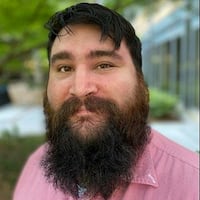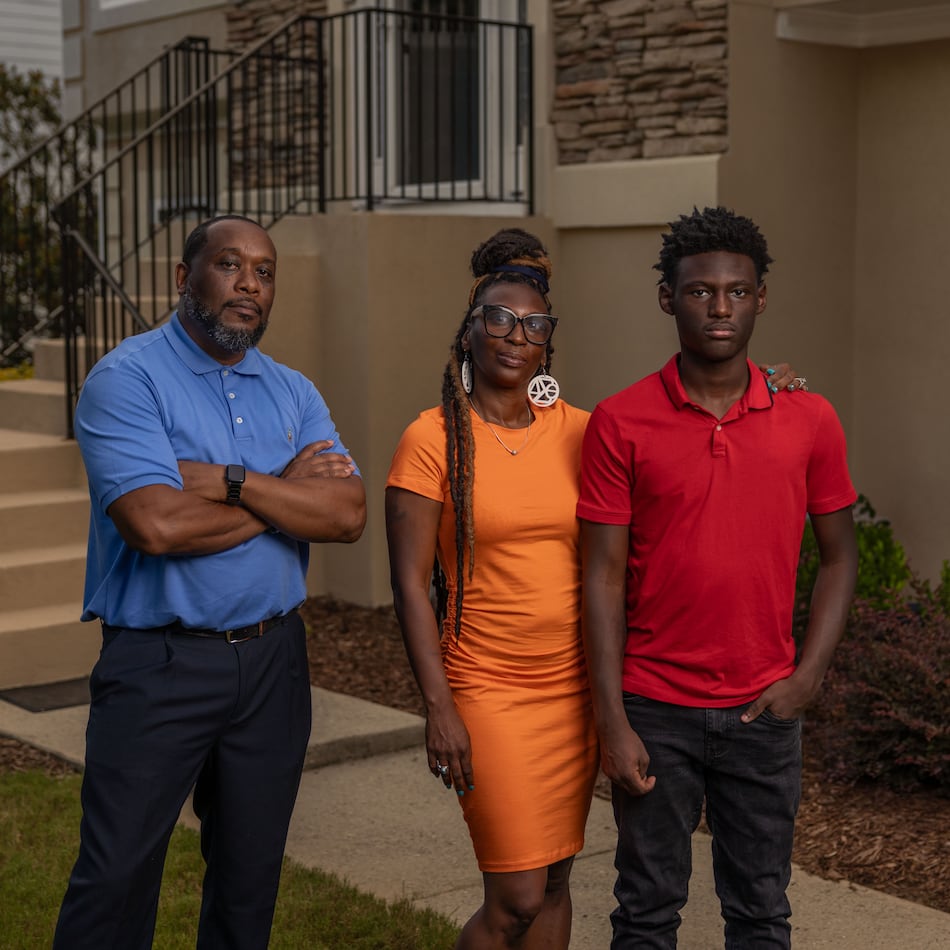When Atlanta’s James Rilling sees his 14-year-old son and 8-year-old daughter to school and then whisks off to work, fatherhood isn’t put on pause. It just takes a different form.
As a professor, researcher and author, Rilling is a local father that’s dedicated to learning about dads. He directs Emory University’s Laboratory for Darwinian Neuroscience, where he researches fatherly caregiving.
“About 15 years ago, I was preparing to teach a new class on just the broader topic of human social neuroscience,” he said. “I wanted to include a unit on love and attachment, and I was reviewing the literature and there was a lot of work that had been done on mothers, the maternal brain and the biology of motherhood.”
Credit: Kay Hinton/Emory University
Credit: Kay Hinton/Emory University
When it came to fatherhood, however, the Emory University professor noticed a large gap in research. Over the following decade and a half, he would go on to teach his own course on fatherhood, complete numerous research projects on the topic and author a book — “Father Nature: The Science of Paternal Potential.” In his fatherhood course, Rilling teaches about how dads differ across cultures and how they impact the developmental psychology of their children. At home, he’s back to being a dad.
“The biggest thing, I think a lot of dads feel this way, is that it’s added tremendous meaning and purpose to my life,” he said, when asked about being a father. “And I’m very grateful for that. I anticipated there would be a lot of challenges, and there have been, but all of those things have enriched my life a lot.”
Ahead of Father’s Day, The Atlanta Journal-Constitution spoke with Rilling about his career in dad research and asked for some top tips new and expectant dads can use at home.
Tapping into ‘Father Nature’
One of his work’s main findings? Men don’t just have the capacity to be good caregivers — it’s in their biology. His book takes a look at the evolution of fatherhood, exploring how men have developed the capacity to be positively engaged caregivers.
“I think some people have the mistaken impression that it’s not natural for men to be nurturing with their infants and children,” he said. “We know now that when fathers (become) positively engaged with their infants and children, that they actually tend to experience some hormonal changes that we think facilitate their involvement and their ability to take on this more nurturing role.”
But those biological boosts are only the beginning.
Credit: Kay Hinton/Emory University
Credit: Kay Hinton/Emory University
Tips for new and expecting fathers
The Emory professor used his years of research and personal fatherhood experience to come up with some tried-and-true tips on being a dad.
“Children tend to have better outcomes when their parents adopt what we call an authoritative parenting style,” he said. “Which is a style that’s characterized by being warm and responsive towards your children, but also setting and enforcing appropriate limits. And you really need to do both of those things.”
It’s not about just being your child’s friend, he explained. You should also be providing safe boundaries for them and ensuring those boundaries are enforced. Once those boundaries are in place to ensure their safety, you can begin the next step.
“There’s a lot of evidence that, even though both parents can do this, fathers often gravitate towards this role of what we call activating their children,” he said.
According to Rilling, fathers participate in this role by introducing their children to the outside world. Through encouragement and supervision, they can give their kids a way to safely explore life outside the home. Winning, losing, competition — dads can help their children learn how to handle challenges and difficult situations from an early age.
“There’s a lot of evidence that good fathers help children to regulate their emotions, especially their negative emotions like frustration, anger, that type of thing,” he said. “They do that through explicit teaching, but also through modeling.”
Rilling says it’s important for fathers to carefully model their emotional reactions to set a good example. It’s not all about hard lessons and careful modeling though. There’s plenty of room for fun.
“I think rough and tumble play is something that I’ve always loved doing with my kids,” he said. “What we’ve learned is that kids benefit a lot from that when it’s done the right way, and dads also tend to gravitate towards that.”
The major benefit of all that playing around could prove profoundly influential later on, largely through learned social skills.
“So what kids are learning during those rough and tumble play-abouts is that, first of all, if I get too upset, dad’s not gonna play with me. And so they learn how to regulate their own emotions. But then they also want to make sure you don’t get upset and so they’re referencing you and your emotions and that’s how they learn in part to empathize.”
About the Author
Keep Reading
The Latest
Featured






